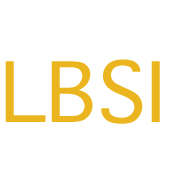
You finish school and look ahead to grand future you’re planning for yourself. You get your first real job out of school and one of the first things you hear is, Time to start planning for your retirement! Whether you are about to receive your first paycheck or you’ve been in the working world for more years than you care to count, contributing to your 401k automatically helps you save for your retirement with barely any planning on your part.
A retirement account is essentially an investment account that you don’t withdraw from (ideally) until you retire. There are two main types of retirement accounts IRA Individual Retirement Accounts – which is what people who don’t have access to a 401k use, or the retirement creating wonder, 401k.
Money you don’t see in the first place turns into head turning money in the second place
About half of Americans have access to a 401K at work. Essentially what happens is, your employer deducts a percentage of your pay and puts it in an investment account for you. That investment grows over time with compound interest and by the time you’re ready to take it out and live off it, it’s become a whale compared to the small fries you started with.
The great things about it is, the money is deducted before you ever see it. Because you don’t have to physically withdraw anything the transaction is essentially invisible. You don’t miss money you never see. Here’s the even better part. Most companies will match your contribution. Typically if you contribute 6% they will match that with 3%. (most employers offer a 50% match) That’s FREE money going directly into your retirement fund, building toward whale sized savings. Who doesn’t want free money? Apparently quite a lot of people.
According to the article Does the Average American Have a 401 (k) from the Motley Fool, “Of those 79% of Americans who get the choice to fund a 401 (k), only 41% opt to participate. As such, just 32% of the total workforce is saving in a 401 (k).”
Obviously if you have outstanding debt that must be attended to, that is your first priority, but once you’re beyond living paycheck to paycheck, contributing to your 401k should really be a no brainer.
Work your way to maximum contributions
How much you contribute to your 401k is up to you. Essentially you want to try and put in as much as you can afford while still maintaining the ability to pay your bills and meet the rest of your regular financial obligations.
If you are currently only contributing 2% because that’s all you can afford right now, and your employer is only matching that with 1% your goal is to work your way up to 4% with a 2% match and then finally 6% to get that maximum 3% match from your employer.
If you are 30 years old with an annual salary of 40,000 and you contribute 6%, which is matched by 3% from your employer, your total contributions of $42,000 over 35 years will have ballooned into $527,000 by the time you’re ready to retire. Use this 401k calculator to figure out how much you can save for your retirement if you start contributing today.
Planning for your retirement can be as simple as saying yes to a plan already in place to help you!







